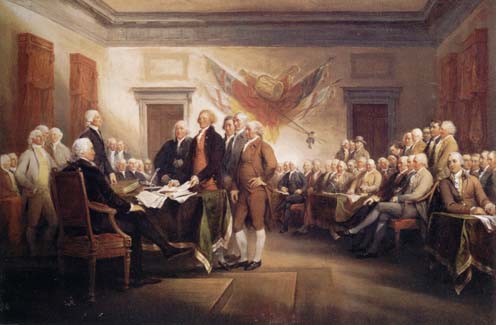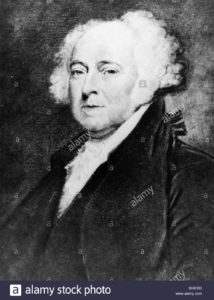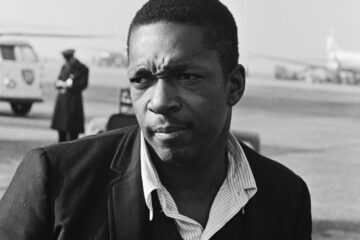Devotional 9/6: Those Who Stood Up and Signed Part 2

I still remember how our Social Studies in high school drilled into our minds how the signers of the Declaration of Independence were risking their lives signing that document. That they were, yet they were not going to allow themselves to be bullied to by any music celebrity, actor, anyone who considered themselves “royalty”, or anyone regardless of their religious beliefs, sexual preferences, country of origin or gender.
Much like their world, in today’s world, standing up for a certain political view can get you seriously injured or killed. Neither side has a monopoly on peace or love. If you dare defy an anti-Trump protester one can get seriously hurt, injured, tortured on Facebook, or killed. The events in Charlotte, NC have shown us that that evil organization, the KKK is still active too.
I want us to better understand these 56 men who were willing to risk everything for their country. So, in the following weeks, I am going to tell you about them, in alphabetical order mostly. I am not sure how many weeks it is going to take. I guess it will be based on how much I can actually find out about them as individuals.
Most of the biographical information will be taken from The Society of the Descendants of the Signers of the Declaration of Independence which gives extensive bios of each of the signers. Here, I shall highlight some of the interesting parts of their lives.
John Adams (10/30/1735-7/4/1826)
 The second president of the United States graduated a teacher yet became a lawyer shortly thereafter. It may be surprising to know that as a lawyer he successfully defended the British soldiers who shot and killed the protesting colonists during the Boston Massacre. Consequently he was distrusted by many of the members of the Continental Congresses. This was one of the reasons he begged Thomas Jefferson to write the Declaration of Independence, even when Jefferson wanted him to write it. Yet, he wholeheartedly approved of Jefferson’s draft and he also (through oratory) convinced many of the members of the Continental Congresses to vote for independence
The second president of the United States graduated a teacher yet became a lawyer shortly thereafter. It may be surprising to know that as a lawyer he successfully defended the British soldiers who shot and killed the protesting colonists during the Boston Massacre. Consequently he was distrusted by many of the members of the Continental Congresses. This was one of the reasons he begged Thomas Jefferson to write the Declaration of Independence, even when Jefferson wanted him to write it. Yet, he wholeheartedly approved of Jefferson’s draft and he also (through oratory) convinced many of the members of the Continental Congresses to vote for independence
After the passage of the Declaration of Independence on July 2, John Adams wrote to his wife Abigail: The second day of July 1776 will be the most memorable epoch in the history of America. I am apt to believe that it will be celebrated by succeeding generations as the great anniversary festival. It ought to be commemorated as the Day of Deliverance by solemn acts of devotion to God Almighty. It ought to be solemnized with pomp and parade, with shows, games, sports, guns, bells bonfires, and illumination from one end of this country to the other from this time forward forever more. You will think me transported with enthusiasm, but I am not. I am well aware of the toil and blood and treasure that it will cost us to maintain this Declaration and support and defend these states, yet through all the gloom I can see the ravishing light and glory. I can see the end is worth more than all the means, and that posterity will triumph in this day’s transactions, even although we shall rue it, which I trust to God we shall not. (http://www.dsdi1776.com/signers-by-state/john-adams
Samuel Adams (9/27/1722-10/2/1803) was the descendent of two original Puritans from England. His whole family was very much a part of the Puritan tradition in Massachusetts. He graduated from Harvard University as a teacher but quickly became a lawyer. He opened his own law office but that business did not succeed. He tried the family business of brewing ale (yes Samuel Adams’ beer) but did not succeed. He lost a lot of money. However, his real passion and success came through politics and his writing and oratory. His political writings about the Sugar Act and the Stamp act brought him attention from the British government and they tried to bribe him (knowing his financial woes) but when that did not work, they branded him a traitor and threatened him with death. When faced with these threats on his life, he once wrote to a messenger, ” Go tell [British] Governor Gage, that my peace has long since been made with the King of kings, and the advice of Samuel Adams is to no longer insult the feelings of an already exasperated people”. He voted for both the Acts of Confederation and the Constitution and after the war served in the state government of Massachusetts.
Abraham Clark (2/15/1741-9/15/1794) was a man of deep spiritual faith. He grew up in Elizabethtown, NJ. He served the English government for many years in small, local positions. He tried his best to help the poor people with legal issues as he could for free. It was through these interactions with the men and women of his community that he started to question and eventually turn on the monarchy. His enmity towards the British was solidified during the war when the British murdered his friends the Rev. James nd Mrs. Caldwell. He helped raise money for the Continental troops during the war. After the war, he and his wife had children yet most of them died. On July 4th, 1776 he wrote:
. . . Our Congress Resolved to Declare the United Colonies Free and Independent States. A Declaration for this purpose, I expect, will this day pass Congress, it is nearly gone through, after which it will be Proclaimed with all the State & Solemnity Circumstances will admit. It is gone so far that we must now be a free independent State, or a Conquered Country. . . . This seems now to be a trying season, but that indulgent Father who hath hitherto Preserved us will I trust appear for our help, and prevent our being Crushed; If otherwise, his Will be done.
George Clymer (3/16/1739-1/24/1813) had a very tough childhood in Philadelphia. All of his siblings died. His mother died when he was 2. He was orphaned at age seven. Yet his uncle, William Coleman raised him. Clymer was educated by Coleman and by his own studies and interests. He was very intelligent, especially in history, law, and politics. Coleman died in 1769, when George was 30 and George continued to run the businesses that Coleman had owned. Yet his passions led him to continue to study and read. He was responsible for creating the Pennsylvania Academy of Fine Arts, the Philadelphia Bank (which provided funding for the revolution), the Philadelphia Society for Promoting Agriculture, and was a trustee of the college that would become the University of Pennsylvania. When he died, he was buried in a Quaker graveyard near Trenton, NJ.
Romans 12:2 Do not be conformed to this world, but be transformed by the renewal of your mind, that by testing you may discern what is the will of God, what is good and acceptable and perfect.
————————————————————W.







No Comment